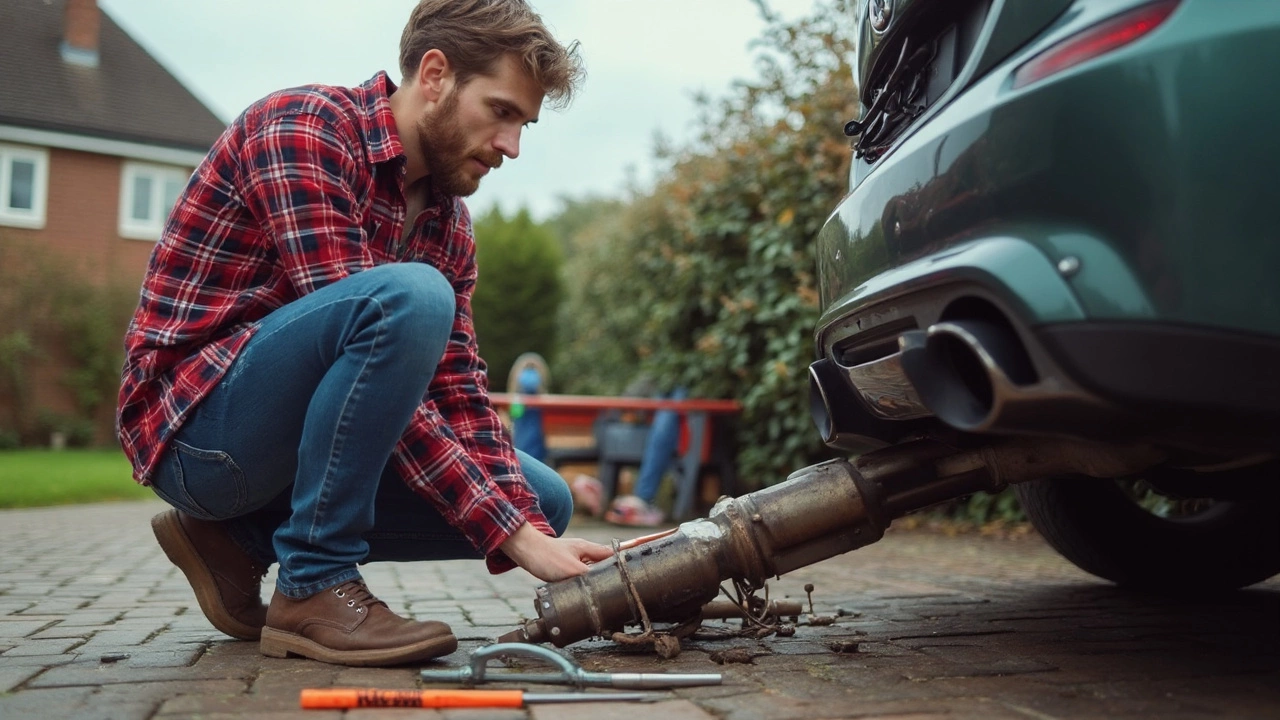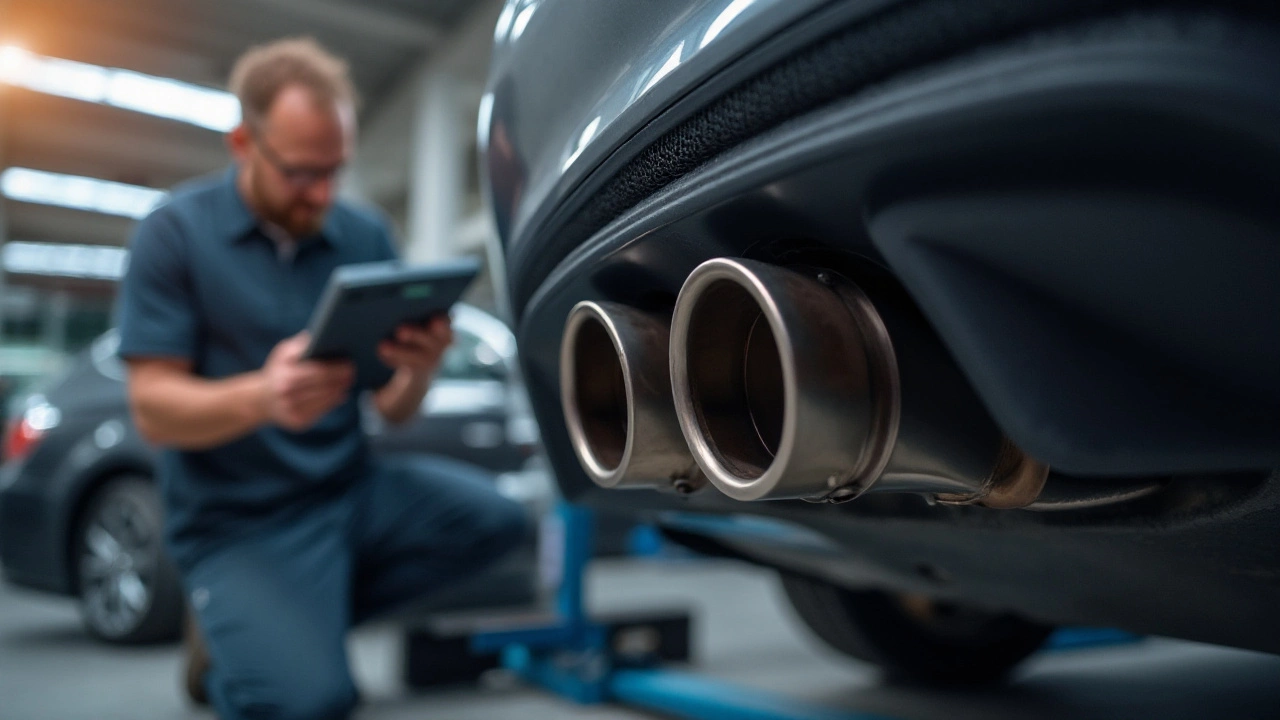Fuel Efficiency: How to Get More Miles from Every Gallon
When talking about Fuel Efficiency, the ratio of distance travelled to fuel used. Also known as miles per gallon (MPG), it shows how well a vehicle converts energy into motion. Good fuel efficiency means lower running costs, less emissions, and a longer range between fill‑ups. Below we break down the main pieces that influence this metric and why they matter for everyday drivers.
Key Factors That Impact Fuel Efficiency
First up, the ignition system. A spark plug, creates the spark that ignites the air‑fuel mixture in each cylinder must fire at the right time and with enough voltage. Worn or fouled plugs cause misfires, which waste fuel and drop MPG by up to 10 %. Replacing them on schedule keeps the combustion process clean and efficient.
Next, the engine breathes through the air filter, a screen that traps dust and debris before air enters the intake. A clogged filter restricts airflow, forcing the engine to work harder and burn more petrol. Swapping a dirty filter for a fresh one can recover lost efficiency almost instantly.
The fuel delivery side also plays a big role. The fuel pump, pressurises gasoline and sends it to the injectors must maintain steady pressure. A weak pump or a blocked line leads to lean or rich mixtures, both of which reduce mileage and increase emissions. Diagnosing pump health early prevents costly fuel waste.
Viscosity of the engine oil is another hidden influencer. Thin oil reduces internal friction, letting moving parts glide smoothly, while overly thick oil creates drag. Using the manufacturer‑recommended grade keeps the engine lubricated without sacrificing fuel economy.
Tire condition is often overlooked but matters a lot. Under‑inflated tyres raise rolling resistance, so the engine has to output extra power to keep the car moving. Regularly checking pressure and correcting wear patterns can shave a few percent off fuel consumption.
Even the braking system affects efficiency. Worn brake pads or warped rotors can cause the brake caliper to drag slightly, creating continuous friction. That drag translates into extra fuel burn, especially in city traffic. Keeping rotors flat and pads within spec helps maintain optimal MPG.
Finally, keep an eye on the overall vehicle load. Extra weight, roof racks, or aerodynamic drag from open windows forces the engine to work harder. Removing unnecessary items before a long drive can improve your fuel numbers without any mechanical changes.
All these components interact: clean spark plugs spark better combustion, a fresh air filter lets the engine breathe, a healthy fuel pump supplies the right amount of fuel, the right oil cuts internal drag, and properly inflated tyres roll smoother. When any link in this chain slips, fuel efficiency drops. Below you’ll find a curated collection of articles that dive deeper into each of these areas, offering step‑by‑step guides, cost breakdowns, and troubleshooting tips to help you squeeze the most miles out of every litre.

How Changing Your Car’s Exhaust Impacts Engine Performance and Longevity
Jun 29 2025 / Car MaintenanceDiscover how swapping your car's exhaust can change engine performance, fuel efficiency, and other critical factors. Facts, tips, mistakes to avoid—no jargon.
VIEW MORE
Does the Car Run Better After a Spark Plug Change? What You Need to Know
Apr 21 2025 / Ignition PartsThinking your car needs new spark plugs? This article breaks down what really happens after you swap them out. Find out how fresh plugs can impact your car's power, fuel efficiency, and even those strange noises coming from under the hood. We’ll bust some myths and give you real tips on when and why to change your spark plugs. Save money and avoid surprise breakdowns with easy facts and advice every driver can use.
VIEW MORE
Does Riding the Clutch Boost Your Gas Mileage?
Apr 1 2025 / Transmission PartsWondering if riding the clutch can actually help you save on gas? The truth might surprise you. Instead of boosting your gas mileage, it could lead to more harm than good by wearing out your clutch parts sooner. In this read, we'll uncover what happens when you ride the clutch—diving into its impact on your car's fuel efficiency and lifespan. Plus, you'll find some handy tips to keep your clutch lasting longer while saving gas.
VIEW MORE
Exploring the Impact of Muffler Deletes on Fuel Efficiency
Jan 16 2025 / AutomotiveMuffler deletes have become a popular modification with car enthusiasts, but whether they actually improve miles per gallon (MPG) is a topic of debate. This article takes an objective look at the mechanics behind muffler deletes and their influence on a vehicle's performance. Readers will learn how exhaust systems work, along with potential benefits and drawbacks of removing the muffler. Discover if this modification aligns with your vehicle goals and what experts suggest before making changes.
VIEW MORE